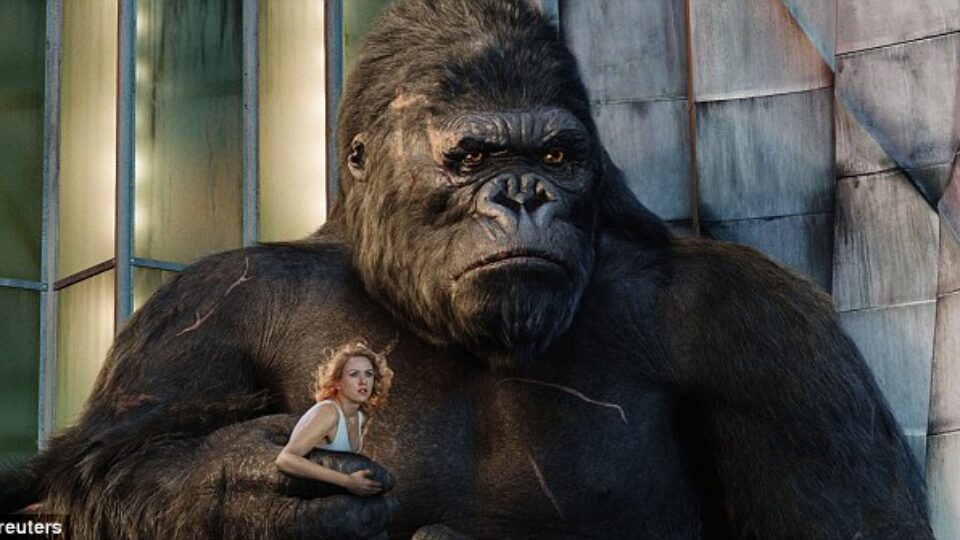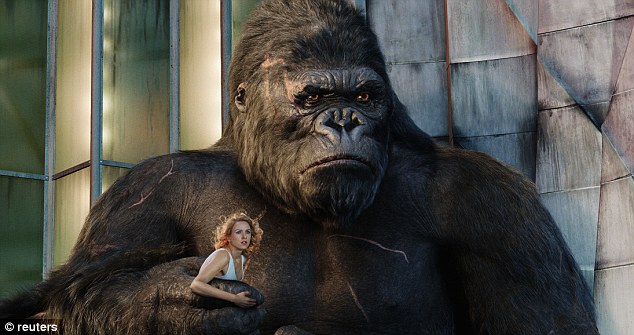
08 Feb2017

share



Here, the basic question of compatibility between partners becomes a super-sized hurdle to overcome. Whether subverting societal, biological, technological or even corporeal norms, these outlandish passions have a tendency to be short-lived and unsustainable – although there are a handful of happy exceptions.
In her autobiography On the Other Hand, Fay Wray recalls King Kong’s co-director Merian C. Cooper promising her that she would soon be sharing the screen with the “tallest, darkest leading man in Hollywood”. Surmising this meant Clark Gable, Wray instead ended up co-starring with one of cinema’s most iconic lovestruck monsters: a beast that, in the movie’s famous climax, literally shouts his love for Wray’s beauty from the rooftops. Inevitably, the infatuation of Skull Island’s lonely alpha male proves fatal.
A young widow is at the centre of Joseph L. Mankiewicz’s whimsical, plangent adaptation of the 1945 novel by Josephine Leslie (written under her pseudonym R.A. Dick). Gene Tierney stars as the self-possessed Lucy Muir who, along with daughter Natalie Wood, moves into an English seaside cottage that happens to be benignly haunted by debonair seadog Daniel Gregg (Rex Harrison). Romance blooms between the pair after Lucy agrees to ghostwrite the spectre’s boisterous memoirs. However, the captain soon finds he has a rival suitor in the form of Lucy’s prospective publisher, the very much alive George Sanders.
Hal Ashby’s second feature is a distinctive, endearing oddity – a droll comedy that frequently teeters on the edge of tragedy. Alienated rich kid Harold (Bud Cort) spends most of his time attending strangers’ funerals and staging elaborate mock suicides that fail to shock his indifferent mother – until he meets septuagenarian Maude (Ruth Gordon), a nutty free spirit and fellow funeral buff. As this unlikely pair develops an increasingly close bond, Colin Higgins’ deliciously off-kilter script juggles sardonic wit with genuine pathos.
In Ridley Scott’s influential Philip K. Dick adaptation, the chaotic, polluted sprawl of 2019 Los Angeles seems to hold precious little room for matters of the heart. Even so, charged with tracking down and eliminating a fugitive group of “more human than human” replicants, emotionally reticent bounty hunter Deckard (Harrison Ford) fudges his assignment by falling for his quarry – the elegant and inscrutable cyborg Rachael (Sean Young).
Director John Carpenter’s previous film was the Stephen King adaptation Christine (1983), a warped love story between a teenager and his possessive – and possessed – Plymouth Fury. Added to that, his last film about an extra-terrestrial was the grisly, effects-laden The Thing (1982). So what’s immediately surprising about Starman is how gentle it is – a soulful story about the brief encounter between a bereft young widow (Karen Allen) and the beatific alien (an Oscar-nominated Jeff Bridges) who not only crash lands in her backyard but assumes the physical form of her late husband.
“It was like playing opposite Paul Newman. The chimpanzee reacted differently, that’s all,” said Charlotte Rampling of her hirsute co-star in Nagisa Oshima’s deadpan bourgeois satire. Reportedly cast by Oshima for a perceived resemblance to David Bowie, Rampling plays a bored diplomat’s wife whose husband and friends are shocked to learn of her illicit trysts with primate lover Max.
John Malkovich had, in a way, already ‘been’ himself long before becoming the self-reflexive avatar of Spike Jonze’s audacious debut feature, Being John Malkovich (1999) – as can be seen in this underrated curio from Desperately Seeking Susan (1985) director Susan Seidelman. Malkovich stars as a brilliant but socially awkward scientist who designs an android clone of himself, primarily for the purpose of space exploration. However, he doesn’t bank on the project’s PR guru (Ann Magnuson) falling head over heels for ‘Ulysses’, who – in stark contrast to his creator – has developed a highly charismatic, emotionally forthright personality.
The shadow of the Berlin Wall looms heavily over Wim Wenders’ lyrical meditation on crossing apparently impossible divides. Drifting through the city unseen while listening in on the thoughts of its variously troubled inhabitants, Bruno Ganz’s immortal angel Damiel falls in love with a lonely trapeze artist (the late Solveig Dommartin) and has to make a fateful decision: remain forever a passive observer and recorder of life on Earth, or become an active participant in it?
At first glance it’s questionable whether Craig Gillespie’s comedy, about a withdrawn young man with intimacy issues who alarms his nearest and dearest by announcing his relationship with a lifelike doll, will be able to sustain its giddy concept over the course of a feature. But Six Feet Under writer Nancy Oliver’s intelligent script explores this potentially zany premise with wit and sensitivity.
Tomas Alfredson’s film is a striking, imaginative adaptation of the novel by John Ajvide Lindqvist, the title of which derived from a song by perennial romantic outsider Morrissey. Set in a snowy Stockholm suburb, the story chronicles the relationship between 12-year-old Oskar, a bullied outcast who fantasises about violent revenge on his tormentors, and Eli, the mysterious, apparently slightly older girl who moves into the adjoining apartment block. Eli becomes a source of comfort and inspires defiance in Oskar but also warns, cryptically, that she’s “not a girl”.